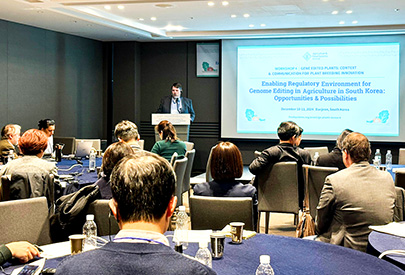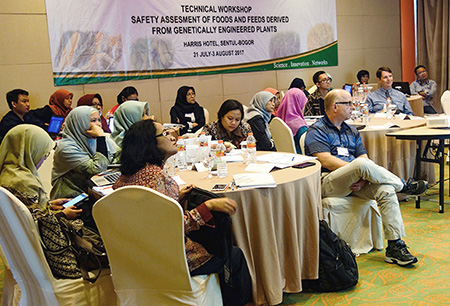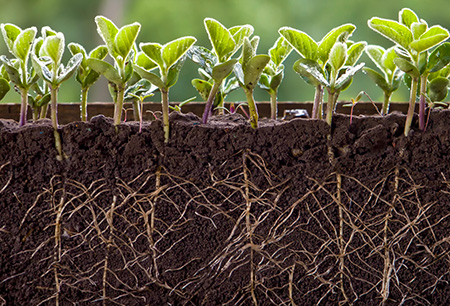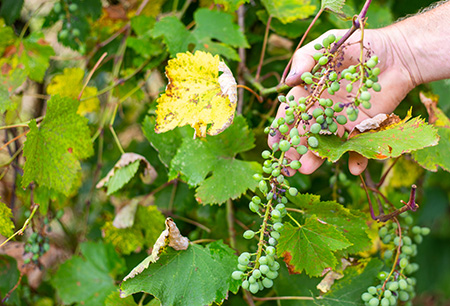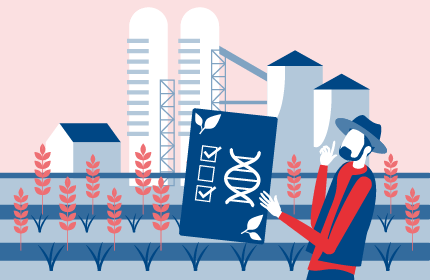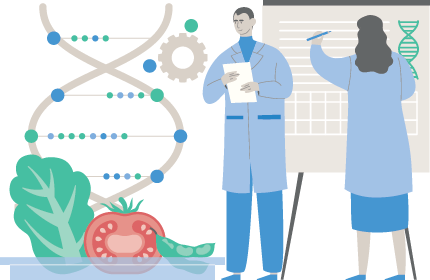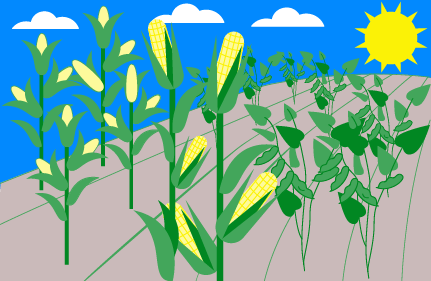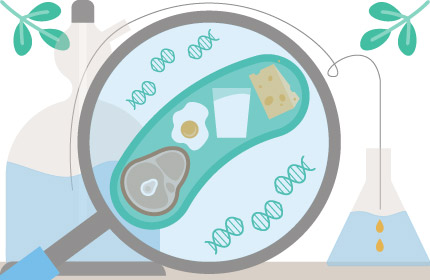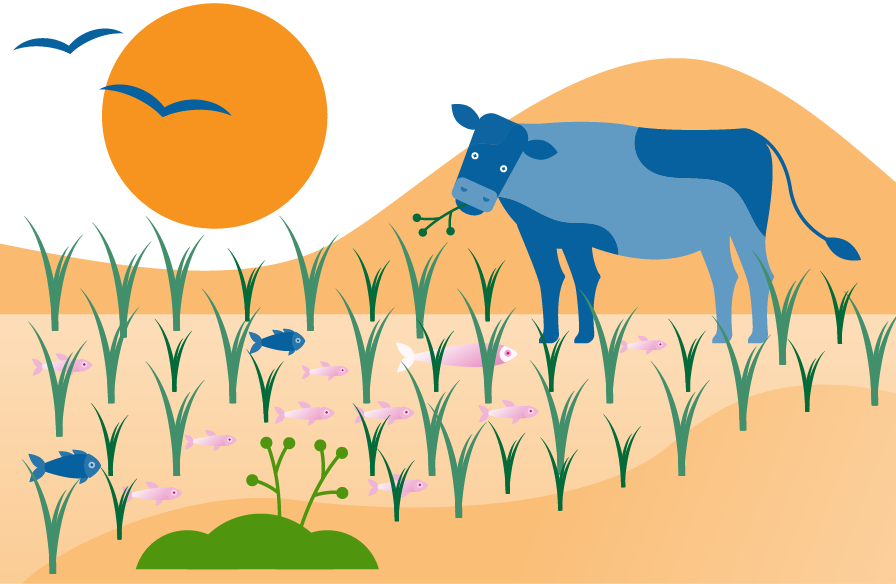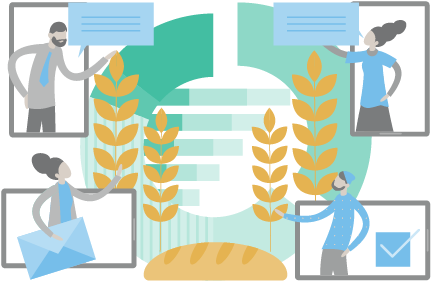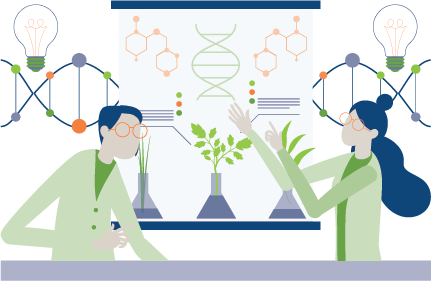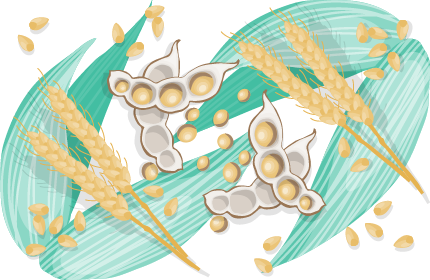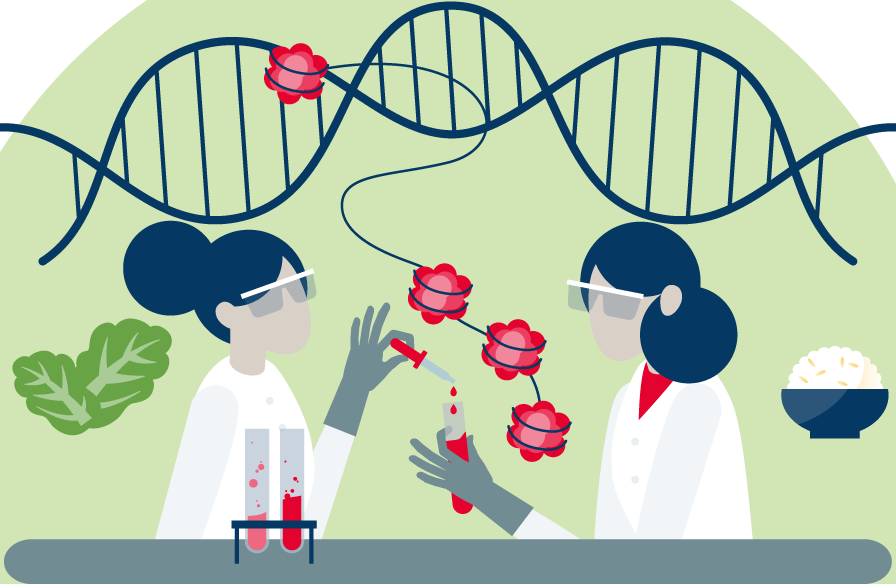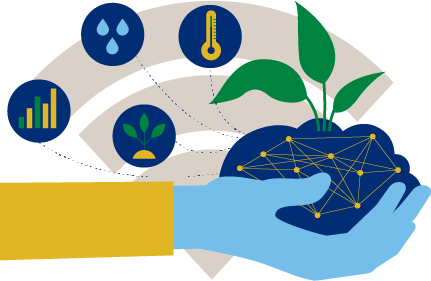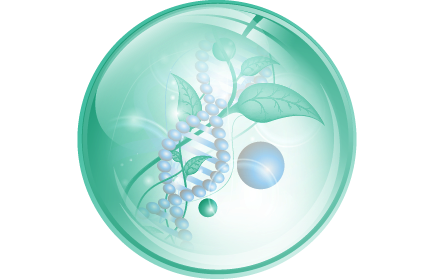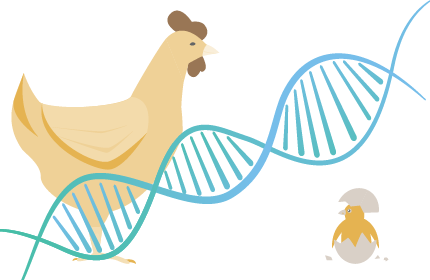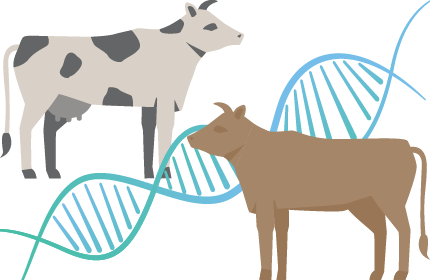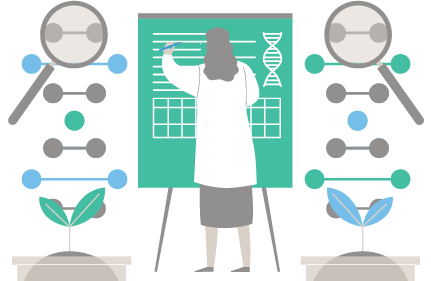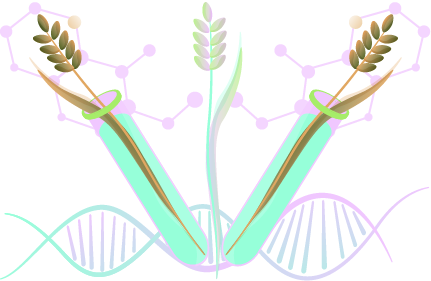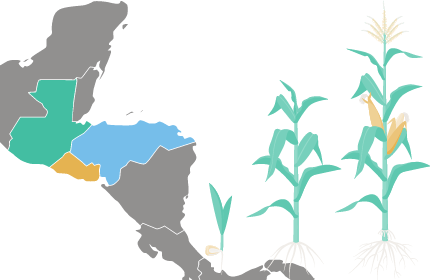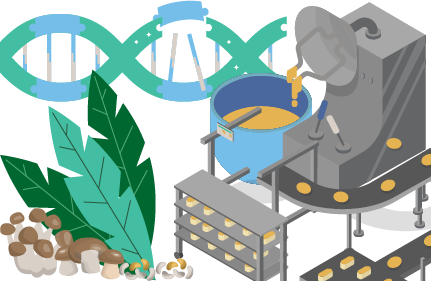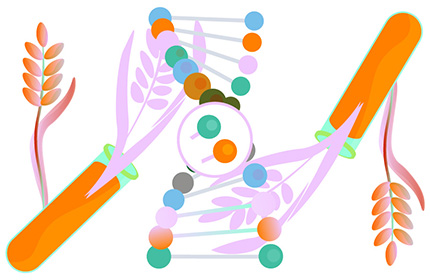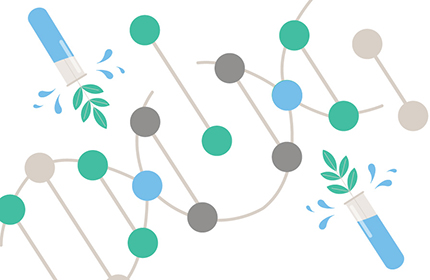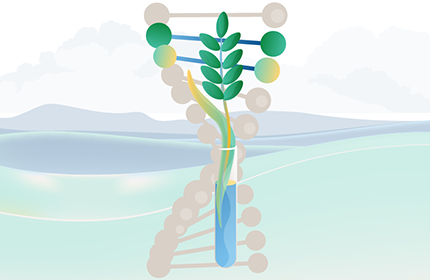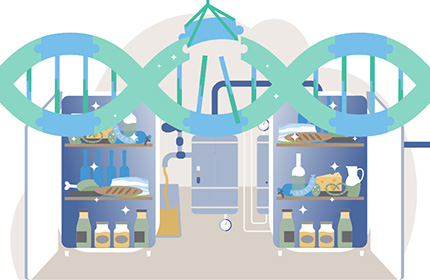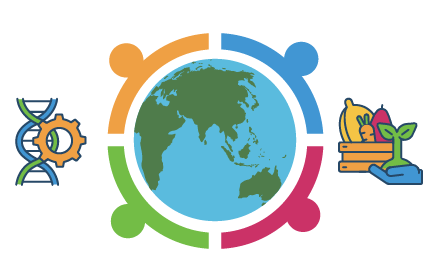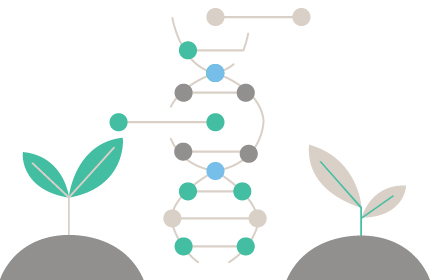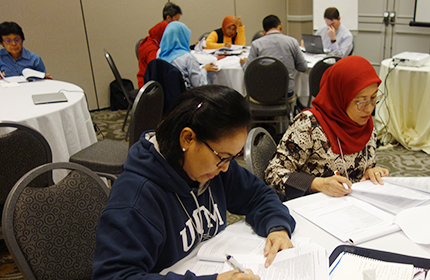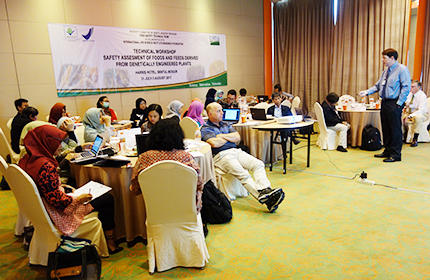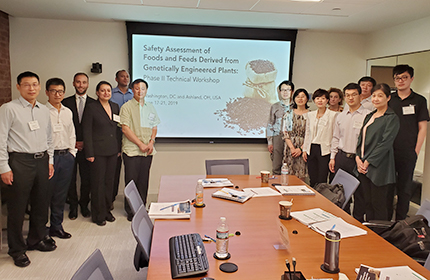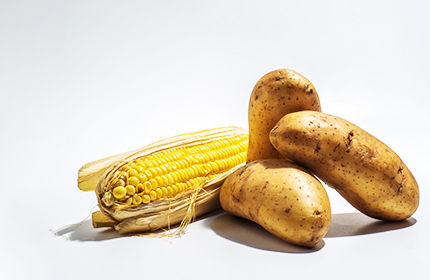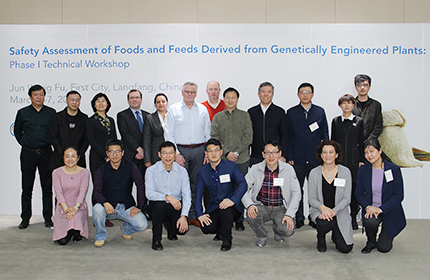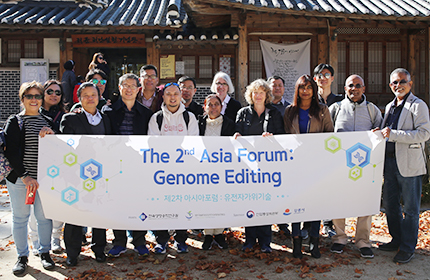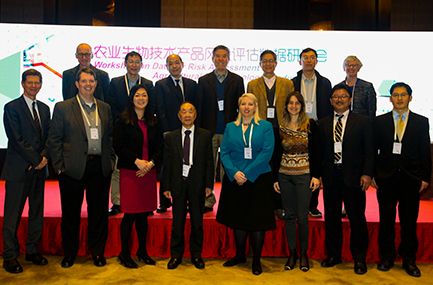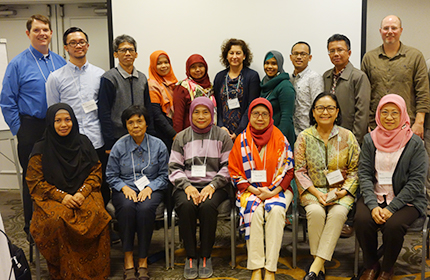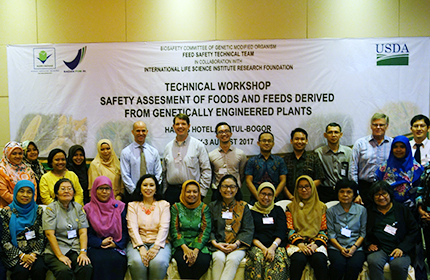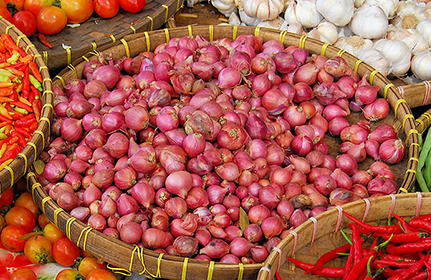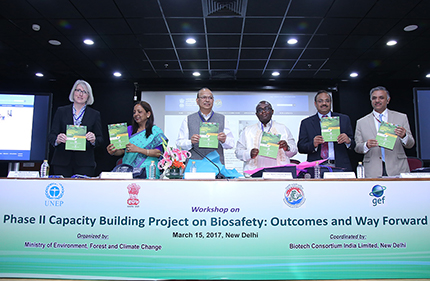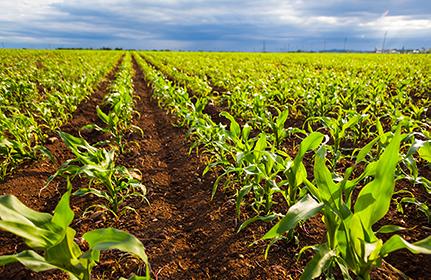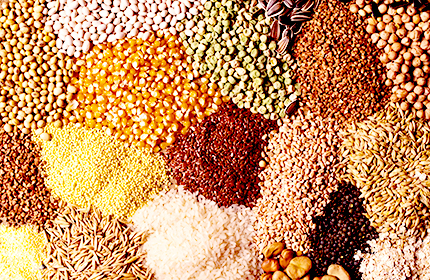Overview
While the majority of governments design safety assessments of genetically engineered foods around the Codex Alimentarius’ principles and guidelines, there remain significant differences in the practical application of requirements at national and regional levels. This adds complexity, time, and cost to the regulatory process, further exacerbates asynchronous authorizations, and stands in the way of achieving regional or sub-regional regulatory cooperation.
What We Are Doing
The Agriculture & Food Systems Institute’s efforts focus on technical training of regulators and public sector scientists who are called upon to undertake safety assessments on behalf of institutional or national biosafety committees. This includes training around concepts and principles of genetically engineered food safety assessment, as well as providing experiential learning opportunities in, for example, state of the art testing facilities.
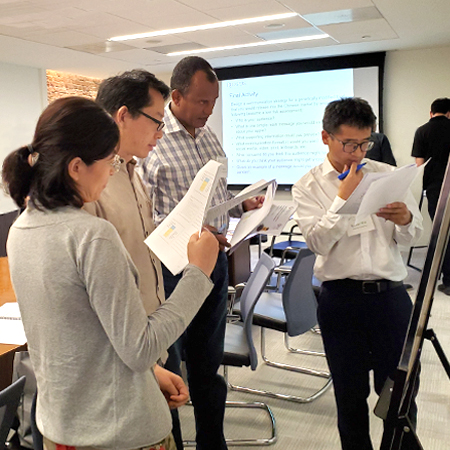
Current Work
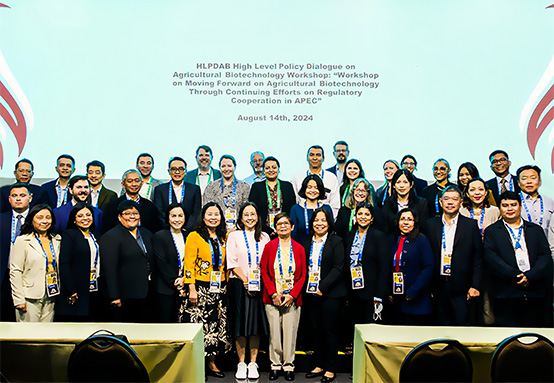
Intercessional Capacity Building Activities Associated with the Asia Pacific Economic Cooperation High Level Policy Dialogue on Biotechnology (APEC HLPDAB)
The Asia-Pacific Economic Cooperation (APEC) affirmed the benefits of biotechnology and called for the establishment of a High Level Policy Dialogue on Agricultural Biotechnology (HLPDAB) in 2001, with the aim of encouraging policymakers in APEC’s 21-member economies to exchange information and promote public policy development to support the responsible use and informed adoption of agricultural biotechnology as one tool to increase agricultural productivity, protect the environment, facilitate trade, and promote food security. Over the years, discussions at the APEC HLPDAB have highlighted efforts towards regulatory and policy solutions for agricultural biotechnologies to reduce barriers to innovation and international trade.
The Agriculture and Food Systems Institute (AFSI) started implementing virtual and in-person intercessional capacity building activities associated with the APEC HLPDAB in 2022, leading up to the plenary meeting hosted by Thailand. This ongoing engagement includes implementing the annual Agricultural Biotechnology Seminar Series, which is organized with an APEC member economy as the official host and active participation from stakeholders familiar with the development or regulation of agricultural biotechnology. When requested, AFSI also assists APEC member economies with the organization of in-person workshops and other activities related to information sharing and regulatory cooperation.
Our Successes
Gene editing refers to a family of precision plant breeding techniques used to develop plants with beneficial traits ranging from resistance to abiotic and biotic stresses to nutritional enhancement.
- While there is no agreed-upon international definition for these techniques, gene editing typically makes use of site-directed nucleases (SDNs) to introduce changes at a specific site in the genome.
- Depending upon the process, the resulting change could range from a point mutation to small sequence changes or potentially to the incorporation of entire genes.
- The regulation of gene edited plants is the subject of much discussion, particularly those that result from small sequence changes that are indistinguishable from plants produced through conventional mutagenesis methods.
The need to facilitate open and informed dialogue in South Korea on the science and policy related to gene editing and novel plant breeding techniques was identified, with the idea that such discussions will:
- Contribute to a science-based and transparent policy for the consideration of gene edited agricultural products among researchers, risk assessors, regulators, scientists, and academics in the country.
- Provide stakeholders with an opportunity to better understand the technology of gene editing.
- Foster an open dialogue between government officials, scientists, and other stakeholders on issues related to new plant breeding technologies.
Supported by a grant from the United States Department of Agriculture Foreign Agricultural Service (USDA FAS) from 2020-2023 and from CropLife International in 2024, the Agriculture and Food Systems Institute (AFSI) convened a Steering Committee and, with their input and hands-on assistance, organized the following series of by-invitation-only online and in-person technical training activities for stakeholders in South Korea:
- Workshop 1: The kick-off webinar on April 22, 2021 introduced gene editing and set the stage for future discussions on regulatory approaches and communication elements related to this technology. Six experts from around the wrold delivered talks on different aspects of gene editing, including the science, regulatory landscape, and communication.
- Workshop 2: The follow-up workshop on July 19-23, 2021 allowed stakeholders to participate in discussions over the course of one week, with the aim of improving their understanding of the technology and varying approaches to regulating the products of gene editing. International experts presented examples of genome edited plants that have been developed around the world, as well as the approach to their regulation in different countries, after which facilitated discussions in breakout groups had participants consider and present on case studies.
- Workshop 3: After priming participants with online activities, the first in-person workshop took place on July 25-26, 2022 in Seoul and covered key concepts in problem formulation, Codex principles, the basics of food and feed safety assessment for whole foods, the application of safety assessment concepts to products of gene editing, and current global practices related to approaches for the regulation of gene edited organisms, followed by practical exercises to provide participants with experience in applying safety assessment concepts to products of gene editing.
- Workshop 4: Organized on December 10-11, 2024 in Daejeon, the concluding in-person workshop focused on encouraging dialogue and enabling effective communication on issues related to new plant breeding technologies among scientists and experts from the government, private sector, academia, Korea Biosafety Clearinghouse, other public sector institutions, law firms, and scientific organizations involved in agricultural biotechnology. Spanning two days, this training event was divided into four technical sessions: (1) Genome Editing in the Context of Agriculture, Food Security, and Innovation, (2) Global Regulatory Landscape for Genome Edited Plants, (3) Socioeconomic Considerations in Adopting Innovative Technologies, and (4) Considerations for Intellectual Property Rights for Plant Varieties.
All events in this series benefited from simultaneous English-Korean translation and discussion sessions facilitated by Korean-speaking moderators.
-
Project Name:
Gene Edited Plants: Context and Communication for Plant Breeding Innovation
-
Years:
2020-2024
-
Funding:
United States Department of Agriculture Foreign Agricultural Service (USDA FAS) New Technologies and Production Methods Division (NTPMD), CropLife International
-
Steering Committee Members:
Dr. Chee Hark Harn (ToolGen, Inc.), Dr. Donghern Kim (Mediprogen), Dr. Yong-Sam Kim (GenKore), Dr. Wayne Parrott (University of Georgia)
-
Country:
South Korea
Safety assessments of food and feed derived from genetically engineered plants in most countries are designed around Codex Alimentarius’ principles and guidelines, with differences in the practical application at national and regional levels. The Agriculture and Food Systems Institute (AFSI) developed a strategic capacity building program focused on technical training of critical stakeholder groups, including:
- Regulators and scientists from the public sector who are called upon to conduct safety assessments of foods derived from genetically engineered plants.
- Public sector scientists engaged in product development.
- Scientists at institutions that may be called upon to provide testing services for product developers.
This training program helps participants:
- Establish a baseline understanding of the concepts and principles of food safety assessment.
- Build a community of practice within their country/region.
Supported by a grant from the United States Department of Agriculture’s Emerging Markets Program (EMP), AFSI conducted a phased training program for members of Indonesia’s Food Safety Technical Team and Feed Safety Technical Team, along with other relevant stakeholders.
Phase I was conducted on August 1-3, 2017 in Bogor, Indonesia and, through lectures and practical exercises, introduced important concepts and components for food and feed safety assessment, including:
- Problem Formulation
- Toxicity
- Composition and Allergenicity Assessment
- Molecular Characterization
Phase II was conducted over five days, on November 6-10, 2017 at the Stine Haskell Research Facility in Wilmington, Deleware. The in-depth training allowed participants to observe how food and feed safety assessment data is collected in the laboratory, focusing on the following topics:
- Laboratory and Vivarium Safety
- Testing Proteins for Toxicity
- Data Analysis and Statistics
- Regulatory Testing Strategy
- Molecular Characterization
- Analytical Chemistry/Composition Analysis
- Allergenicity
- Bioinformatics
Following the completion of Phase I and II, AFSI remained in contact with participants through a series of surveys. Having confirmed that participants found the training useful and relevant to their responsibilities related to genetically engineered food and feed safety assessment, and after learning that there had been some turnover in Indonesia with respect to the Indonesia Biosafety Commission, AFSI proposed revisiting the training in a virtual format, to introduce these concepts and tools to additional regulators and as a refresher to those who had already completed Phases I and II.
Comprised of ten modules released in tranches between June 15-December 20, 2020, with a virtual facilitated discussion to conclude the event, Phase III covered:
- Concepts, principles, standards, guidelines, and documents developed at the international level through intergovernmental organizations, such as the Codex Alimentarius Commission and the Organisation for Economic Cooperation and Development (OECD)
- The Food Safety Assessment Framework
- The Concept of Comparative Assessment
- Determination of Substantial Equivalence
- Considerations for Feed Safety
- Approaches to Safety Assessment and Regulation of Breeding Stacks
- Effective Communication and Consultation
-
Project Name:
Genetically Engineered Food/Feed Safety Assessment Training
-
Years:
2017-2020
-
Funding:
United States Department of Agriculture Foreign Agricultural Service (USDA FAS) Emerging Markets Program (EMP)
-
Partners and Collaborators:
Indonesian National Agency of Drug and Food Control (BPOM), Indonesian Center for Agricultural Biotechnology and Genetic Resources Research and Development (ICABIOGRAD), USDA FAS
-
Parties:
Members of Indonesia’s Food Safety Technical Team, Feed Safety Technical Team, and Biosafety Commission
-
Geography:
Indonesia
Microbial biotechnology, which includes the use of both conventional and genetically engineered microbes, is used to produce a range of foods, beverages, and their ingredients, including:
- Enzymes used to make wine, cheese, beer, and processed products ranging from baked goods to sauces.
- Vitamins used to make infant formula similar to human milk and wellness-enhancing products.
- Food additives for seasoning, flavoring, coloring, or thickening, including those used for plant-based meat products, and many other applications.
In agriculture, through genome studies, microbial biotechnology could lead to the development of:
- Improved microbial agents for biological control of plant and animal pests.
- Modifications of plant and animal pathogens for reduced virulence
- New microbial agents for bioremediation of soil and water.
With an increasing number of products either on the market or in the pipeline, a need was identified for bringing increased attention to the development, use, and safety assessment process for products of microbial biotechnology, with a focus on helping countries implement informed policies to assess and access products produced using microbial biotechnologies that meet the need of government regulators, producers, and consumers.
Supported by a grant from the United States Department of Agriculture Foreign Agricultural Service (USDA FAS), the Agriculture the Food Systems Institute (AFSI) developed the following series of virtual seminars and workshops, each focusing on a different geographical region:
- Microbial Biotechnology for Novel Foods Webinar Series: Targeted at a global audience and focusing on the history and opportunities of microbial biotechnology for novel foods, this virtual event comprised four sessions taking place between July 9-17, 2020, beginning with a plenary talk on the history and future of microbial technology, followed by three discussion sessions guided by experts in the field. This introductory activity primed stakeholders for subsequent online seminars tailored to their geographies.
- Microbial Biotechnology for the European Union (EU): This regional webinar on July 8, 2021 convened scientists and policymakers from academia, industry, and governments from across the EU to discuss regulatory policies and science communication around food ingredients derived from genetically modified microbes, algae, and fermented products, featuring four 20-minute presentations, followed by a facilitated panel discussion with audience participation.
- Microbial Biotechnology for Novel Food and Food Ingredients in India: This regional webinar on January 11, 2022 brought experts together to foster a shared understanding of the nature of microbial biotechnology products and the proportionate risks associated with them in the context of food, with presentations on emerging trends in India’s food processing industry, the science of microbial biotechnology, regulatory requirements for food ingredients and processing aids, and firsthand experience of navigating the regulatory system in India.
- Microbial Biotechnology for Novel Food and Food Ingredients for Southeast Asia: Comprised of three sessions taking place between September 13-15, 2022, this regional webinar series gathered stakeholders to discuss the current status and future of novel foods for Southeast Asia, the science and safety of products derived from microbial biotechnology, regulatory frameworks related to microbial biotechnology for food products in Singapore and Thailand, microbial biotechnology for feed improvement in the Philippines, and firsthand experience getting a product to market in Southeast Asia.
- Workshop on Microbial Biotechnology for Food, Feed, and Agricultural Use in South America: Simultaneously translated into Spanish, this two-day virtual workshop on June 5-6, 2024 focused on the changing landscape of products of microbial biotechnology in South America, their regulation, and the role of international organizations in supporting the safety assessment of these products, with talks on regulatory frameworks for genetically engineered microbes in several countries in the region.
-
Project Name:
Contributing to Understanding the Use and Safety of Microbial Biotechnology for Novel Foods
-
Years:
2020-2024
-
Funding:
United States Department of Agriculture Foreign Agricultural Service (USDA FAS) New Technologies and Production Methods Division (NTPMD)
-
Partners and Collaborators:
Biotech Consortium India Limited (India), Secretariat of Bioeconomy–Ministry of Economy of Argentina (South America)
-
Focus Regions:
European Union, India, Southeast Asia, South America
Genome editing has the potential to be a powerful tool for adapting grape varieties to various use cases, and a need was identified to:
- Showcase applications relevant to a broad base of stakeholders in the European Union (EU).
- Demonstrate the potential of using genome editing tools in breeding programs to traditional agriculturalists.
- Highlight the possible application of this technology to improve the resiliency of grape varieties to rapidly changing conditions.
The Agriculture and Food Systems Institute organized a virtual workshop targeted at EU scientists, risk assessors, regulators, farmers, and private sector professionals from the wine industry on May 29, 2023. The first technical session presented the potential of genome editing technology to:
- Improve practices for grape cultivation toward different end uses.
- Improve grapevine disease resistance.
- Improve grape varieties for region-specific challenges, particularly in Italy.
The second technical session focused on challenges to:
- Commercialization of grape varieties developed using genome editing
- Consumer acceptance of wines made using fungus-resistant grapes
- Farmer acceptance of grape varieties developed using new genomic techniques.
Each session concluded with a discussion and Q&A opportunity.
-
Project Name:
Virtual Workshop on Harnessing Genome Editing Technologies for Viticulture
-
Year:
2023
-
Funding:
United States Department of Agriculture Foreign Agricultural Service New Technologies and Production Methods Division (USDA FAS NTPMD)
-
Collaborator:
USDA
-
Geography:
European Union
Discover
Publications
Towards a Harmonised Approach to Food Safety Assessment of Genetically Engineered Plants in South Asia – Expert Working Group Report
December 20, 2021
The harmonisation initiative in South Asia was formally undertaken in 2020 by the Agriculture & Food Systems Institute (AFSI) by convening an Expert Working Group (EWG) constituted of senior experts and regulators identified from agencies in Bangladesh, Bhutan, India, and Sri Lanka that are relevant to the safety assessment of foods derived from rDNA plants. This report was systematically drafted by the EWG.
Sublethal Endpoints in Non-Target Organism Testing for Insect-Active GE Crops
Frontiers in Bioengineering and Biotechnology | June 9, 2020
This review paper focuses on the current status and history of sublethal endpoint use in insect-active GE crops and evaluates the future use of sublethal endpoints for new and emerging technologies.
Low Level Presence in Seed: A Science Based Approach to Expedited Environmental Risk Assessment
March 31, 2014
The Agriculture & Food Systems Institute organized a workshop held in Buenos Aires, Argentina on December 18-19, 2013 on low level presence (LLP) in seed. This document contains the conference proceedings to address the potential adverse environmental impacts that might arise from an LLP in seed situation using a consistent and scientifically defensible approach to environmental risk assessment.
The Use of Whole Food Animal Studies in the Safety Assessment of Genetically Modified Crops: Limitations and Recommendations
Critical Reviews in Toxicology | January 1, 2013
This manuscript by Bartholomaeus et al., published in Critical Reviews in Toxicology, focuses on the relevance and utility of whole food animal studies in safety assessments of GM crops (Task Force #10).
Natural Variation in Grain Composition of Wheat and Related Cereals
Journal of Agricultural and Food Chemistry | January 1, 2013
Proceedings from the 2012 IFBiC Plant Compositional Analysis Workshop, published in the Journal of Agricultural and Food Chemistry (Shewry et al. 2013;61(35):8295-8303) (Task Force #12).
How Composition Methods Are Developed and Validated
Journal of Agricultural and Food Chemistry | January 1, 2013
Proceedings from the 2012 IFBiC Plant Compositional Analysis Workshop, published in the Journal of Agricultural and Food Chemistry (Rogers. 2013;61(35):8312-8316) (Task Force #12).
Bringing a Transgenic Crop to Market: Where Compositional Analysis Fits
Journal of Agricultural and Food Chemistry | January 1, 2013
Proceedings from the 2012 IFBiC Plant Compositional Analysis Workshop, published in the Journal of Agricultural and Food Chemistry (Privalle et al. 2013;61(35):8260-8266) (Task Force #12).
Application of Laws, Policies, and Guidance From the United States and Canada to the Regulation of Food and Feed Derived From Genetically Modified Crops: Interpretation of Composition Data
Journal of Agricultural and Food Chemistry | January 1, 2013
Proceedings from the 2012 IFBiC Plant Compositional Analysis Workshop, published in the Journal of Agricultural and Food Chemistry (Price and Underhill. 2013;61(35):8349-8355) (Task Force #12).
Biological Importance and Statistical Significance
Journal of Agricultural and Food Chemistry | January 1, 2013
Proceedings from the 2012 IFBiC Plant Compositional Analysis Workshop, published in the Journal of Agricultural and Food Chemistry (Lovell. 2013;61(35):8340–8348) (Task Force #12).
Availability and Utility of Crop Composition Data
Journal of Agricultural and Food Chemistry | January 1, 2013
Proceedings from the 2012 IFBiC Plant Compositional Analysis Workshop, published in the Journal of Agricultural and Food Chemistry (KItta. 2013;61(35):8304–8311) (Task Force #12).
Food Safety: Importance of Composition for Assessing Genetically Modified Cassava (Manihot esculenta Crantz)
Journal of Agricultural and Food Chemistry | January 1, 2013
Proceedings from the 2012 IFBiC Plant Compositional Analysis Workshop, published in the Journal of Agricultural and Food Chemistry (Jansen van Rijssen et al. 2013;61(35):8333-8339) (Task Force #12).
Compositional Analysis of Genetically Modified (GM) Crops: Key Issues and Future Needs
Journal of Agricultural and Food Chemistry | January 1, 2013
Proceedings from the 2012 IFBiC Plant Compositional Analysis Workshop, published in the Journal of Agricultural and Food Chemistry (Hoekenga et al. 2013;61(35):8248–8253) (Task Force #12).
Events
-
 Agricultural Biotechnology Seminar Series 2025 | Seminar 3: Current Status and Future Strategies for the Development of Agricultural Biotechnology Crops in Korea
Agricultural Biotechnology Seminar Series 2025 | Seminar 3: Current Status and Future Strategies for the Development of Agricultural Biotechnology Crops in KoreaNovember 21, 2025
Seoul, Republic of Korea
-

-
 HLPDAB: Successful, Efficient, and Effective Regulatory Cooperation on Agricultural Biotechnology in APEC
HLPDAB: Successful, Efficient, and Effective Regulatory Cooperation on Agricultural Biotechnology in APECAugust 8, 2025
Incheon, Republic of Korea
-



